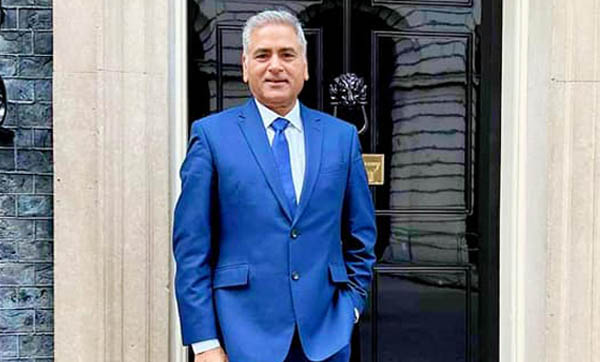Why Far-right groups in the UK have targeted Muslims and immigrants ?

By Dr Ashraf Chohan
Chief Editor Daily Rapid Lahore
Far-right groups in the UK have targeted Muslims and immigrants for several reasons, which can be understood through the lens of various social, political, and economic factors:
1. Economic Anxiety and Job Competition:
– Economic downturns and job insecurities often lead to scapegoating of immigrants, who are perceived as competitors for jobs and social services. This economic anxiety can fuel xenophobia and anti-immigrant sentiments.
– Research has shown that economic difficulties can amplify fears that immigrants are taking away jobs and resources, even if such fears are not supported by evidence.
2. Cultural and Identity Issues:
– Some far-right groups promote the idea of cultural purity and view immigration, especially from Muslim-majority countries, as a threat to British identity and cultural norms. This cultural anxiety can lead to a backlash against immigrants perceived as different.
– The narrative that Muslims and immigrants are not integrating into British society and are instead forming parallel societies can contribute to these tensions.
3. Media and Political Rhetoric:
– Certain media outlets and political figures have been accused of spreading negative stereotypes and misinformation about Muslims and immigrants, which can incite fear and hostility. Sensationalist reporting on crimes involving immigrants can exacerbate these sentiments.
– The framing of immigrants and Muslims as security threats, particularly in the context of terrorism, has also contributed to a climate of fear and suspicion.
4. Historical Context and Nationalism:
– Far-right groups often tap into historical narratives of nationalism and imperial pride, which can include a nostalgic longing for a homogenous society. This perspective views the presence of immigrants, particularly those from former colonies, as a disruption to this idealized past.
– The Brexit debate highlighted these tensions, with some Leave campaigners emphasizing the need to control immigration to reclaim national sovereignty
5. Social Media and Online Radicalization:
– The internet and social media platforms have allowed far-right groups to spread their messages more widely and organize more effectively. Online echo chambers can radicalize individuals and amplify extremist views.
– Studies have shown that social media can play a significant role in spreading hate speech and inciting violence against minorities.
These factors collectively contribute to the attacks on Muslims and immigrants by far-right groups in the UK. The complexity of these issues requires multifaceted approaches to address the underlying causes of such hostility.







